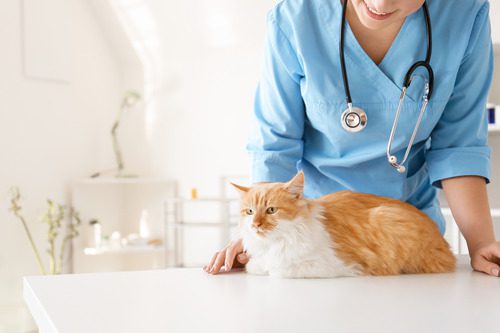Symptoms of Taurine Deficiency in Cats
Taurine is an essential amino acid for cats, playing a vital role in their overall health. Unfortunately, taurine deficiency in cats can lead to serious health issues if not addressed promptly. This blog will explore the symptoms of taurine deficiency in cats, helping you recognize the signs early and seek appropriate veterinary care.

Understanding Taurine Deficiency in Cats
Taurine is crucial for various bodily functions, including vision, digestion, heart function, and fetal development. Unlike other animals, cats cannot produce sufficient taurine on their own and must obtain it from their diet. Commercial cat foods typically include taurine, but homemade diets or poor-quality cat food may lack adequate amounts, leading to deficiency.
Vision Problems
One of the first symptoms of taurine deficiency in cats is vision problems. Taurine is essential for the health of the retina, and a deficiency can lead to retinal degeneration, causing irreversible blindness if left untreated. Symptoms include dilated pupils, difficulty seeing in low light, and a noticeable decline in overall vision. If you notice your cat bumping into objects or hesitating in dimly lit areas, it may be time to consult your veterinarian.
Retinal Degeneration
Retinal degeneration progresses over time, so early detection is key. Regular veterinary check-ups can help monitor your cat’s eye health and catch any signs of taurine deficiency before severe damage occurs. Your vet may recommend a taurine supplement if dietary intake is insufficient.
Heart Disease
Taurine deficiency can also lead to a specific type of heart disease known as dilated cardiomyopathy (DCM). This condition causes the heart muscle to weaken and enlarge, impairing its ability to pump blood effectively. Symptoms of DCM include lethargy, difficulty breathing, and sudden collapse. If you observe these signs, seek veterinary care immediately.
Symptoms of Dilated Cardiomyopathy
DCM symptoms can vary, but common indicators include rapid breathing, coughing, reduced appetite, and general weakness. Regular heart check-ups and an appropriate diet can help prevent the development of this severe condition. If your cat is diagnosed with DCM, a taurine-rich diet or supplements can help manage the disease and improve heart function.
Reproductive and Developmental Issues
Taurine is essential for pregnant and nursing cats as well as growing kittens. Deficiency in pregnant cats can lead to reproductive failures, including low birth weights, stillbirths, and developmental abnormalities in kittens. For nursing cats, inadequate taurine levels can result in insufficient milk production and poor kitten growth.
Signs in Kittens
Kittens born to taurine-deficient mothers may exhibit slow growth, developmental delays, and poor muscle function. Ensuring that breeding cats receive a taurine-rich diet is crucial for the health of both the mother and her offspring. Consult your vet to discuss proper nutrition during pregnancy and lactation.
Digestive Issues
Cats with taurine deficiency may also experience digestive issues, such as poor digestion and nutrient absorption. Taurine plays a role in bile salt formation, which is necessary for fat digestion. Symptoms of digestive problems include diarrhea, weight loss, and a dull coat.
Impact on Digestion
When taurine levels are insufficient, cats may struggle to digest and absorb nutrients effectively, leading to malnutrition and other health problems. A balanced diet with adequate taurine can improve digestive health and overall well-being. If you notice persistent digestive issues in your cat, consult your vet for dietary adjustments.
Immune System Complications
Taurine is vital for maintaining a strong immune system. Cats with taurine deficiency are more susceptible to infections and illnesses due to a weakened immune response. Symptoms may include frequent infections, slow recovery from illnesses, and general lethargy.
Strengthening the Immune System
Ensuring your cat receives enough taurine through a balanced diet is essential for a robust immune system. Discuss with your veterinarian the best dietary options to support your cat’s immune health and prevent deficiencies.
Behavioral Changes
Behavioral changes can also indicate taurine deficiency in cats. You may notice your cat becoming more lethargic, less playful, or exhibiting signs of depression. Taurine is crucial for brain function, and its deficiency can affect your cat’s mood and behavior.
Recognizing Behavioral Symptoms
Monitor your cat for changes in activity levels and behavior. If your once-active cat becomes sluggish or disinterested in play, it may be a sign of taurine deficiency. A diet rich in taurine can help improve brain health and restore your cat’s vitality.
Prioritizing Your Cat’s Nutritional Needs
Recognizing the symptoms of taurine deficiency in cats is crucial for their health and well-being. Early detection and proper dietary management can prevent serious health issues and improve your cat’s quality of life. If you suspect your cat may have a taurine deficiency, contact 441 Animal Hospital in Boca Raton, FL, at (561) 482-5600 to schedule a veterinary consultation. Ensuring your cat receives a balanced diet with adequate taurine is essential for maintaining their health and happiness.